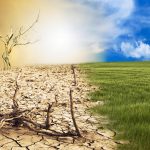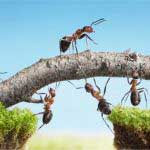2020 – the pandemic has triggered an economic and human catastrophe and it’s far from over. But it will spark a new normal – “the imperative of our time”, bringing a “dramatic restructuring of the economic and social order” (Devex Jan 2021). So how different was the world in 2020 and how will this reshape our strategies for 2021 to 2025?
Nearly 2 million people have died from COVID-19 to date, over 600 in Zimbabwe. (Sources: Wikipedia and others – 15 Jan 2021, 10:00hrs). Tens of millions of people are at risk of falling into extreme poverty, while the number of undernourished people, currently estimated at nearly 690 million, could increase by up to 132 million by the end of the year.
“COVID-19 has triggered the deepest global recession since the Second World War.” (Reuters Jan 2021). It is forecast that the global economy, as well as per capita incomes, will shrink further this year – pushing millions into extreme poverty. Even before the spread of COVID-19, almost half of all low-income countries were already in debt distress or at a high risk of it.
Millions of enterprises face an existential threat. Nearly half of the world’s 3.3 billion global workforce are at risk of losing their livelihoods. Informal economy workers are particularly vulnerable because the majority lack social protection and access to quality health care and have lost access to productive assets. Without the means to earn an income during lockdowns, many are unable to feed themselves and their families. For most, no income means no food, or, at best, less food and less nutritious food.
Around the world, it’s seismic shifts
In WASHINGTON – The last time there was a Democratic majority in both Houses of the U.S. Congress after a Presidential election was 2009. There was a sense that there was a clear opportunity for a robust development agenda, but it did not really materialise. Some advocates tell us that despite commitments to diversify its contractors to work with more local entities they still pass most work to 25 US organisations.
In LONDON – It’s been a year of crisis for the United Kingdom’s development sector. On top of the pandemic, it lost its two sacred cornerstones — the Department for International Development and the 0.7% aid spending target — within six months of each other. Johnson himself had begun expressing a wariness of aid. Whether by causation or correlation, the problem has coincided with a significant decline in public support for aid and development.
In EUROPE – The EU is collectively the biggest donor for international aid in the world, providing over €50 billion a year to help overcoming poverty and promote development. EU budget support represents a firm contribution to the commitment to allocate 0.2% of the EU gross national income to least-developed countries. Germany, however, plans to cut support for 25 countries and streamline its funding priorities.
ELSEWHERE – The United Nations faces its biggest liquidity crisis in decades, largely brought on by unpaid contributions from the U.S. government, which owes the international body over $1 billion for peacekeeping and has not delivered more than $630 million in outstanding payments to the U.N.’s core budget.
In November, development consulting group DAI announced it had taken the unusual step of acquiring a majority stake in an investment bank. The World Bank is asking how it can continue to provide global expertise and supervision at a time when travel is nearly impossible while tensions heated up at the African Development Bank as it moves on from its corruption scandal and heads toward an election.
In HARARE: The triple shocks and the increasing risks – a global pandemic, an economic crisis, and a temporary disruption of capital flows – continue to tighten financing conditions in an already bruised market. This has translated into a sharp increase in the macroeconomic risks, job losses, and, to a lesser extent, to increases in other risks like human rights abuses, corruption, and weak climate change responses.
What to expect going forward?
Policy makers, directors, executives, community leaders, and researchers from around the world are of the opinion that:
- Travel may require compulsory COVID-19 shots, while experts say herd immunity is still at a distance. Global Travel bodies have called potential vaccine requirement discriminatory. Business travel will take at least another 2 years to recover, local leisure travel might recover a bit quicker. Adjust your budgets accordingly and learn to work remotely.
- With the “draining the swamp” champions on the way out, more compassionate, more dignified, and humble approaches will be back in vogue. All people are going to be expected to do more on racial tolerance and diversity. All organisations will be expected to heed climate warnings. Increased government action and engagement can be expected during this crisis.
- The crisis will continue to spark waves of innovation, launching a generation of adapted entrepreneurs. There has been tremendous growth in digitization, meaning everything from online customer service to remote working to supply-chain reinvention to the use of artificial intelligence (AI) and machine learning to improve operations. Healthcare, too, has changed substantially, with telehealth and biopharma coming into their own.
What to do about it?
Based on these hard trends, the future looks dark. But it does not have to be. Bringing light to the landscape will require us all to be more anticipatory, more innovative and adaptive, and more collaborative.
Anticipatory means working out the likely outcomes, the likely impact and how we will respond. It’s time to get the creative thinking caps on and figure out how to simplify, automate and make space for the adaptive action.
Focus on value-addition, rather than commoditisation, is a way to cope with depressed demand and lower volumes. More local, circular economies will survive better than traditional import-dependent, long supply-chain ones. Investing in new skills, digital accelerators in data collection, monitoring, inventory management, supply chain forecasting and better connectivity will all bring brightness to this dull patch.
Learn to build relationships remotely. While competition is important to maintain efficiencies, collaboration provides the real opportunity for building competencies, involving people in innovation and change, communicating strategy and leveraging altruistic motives.
Strengthen our neighbourhood citizens’ organisations, innovating around our own energy, food and waste production, starting in our homes, and actively and deliberately preventing technology from stunting our imaginations and fudging our brains.






